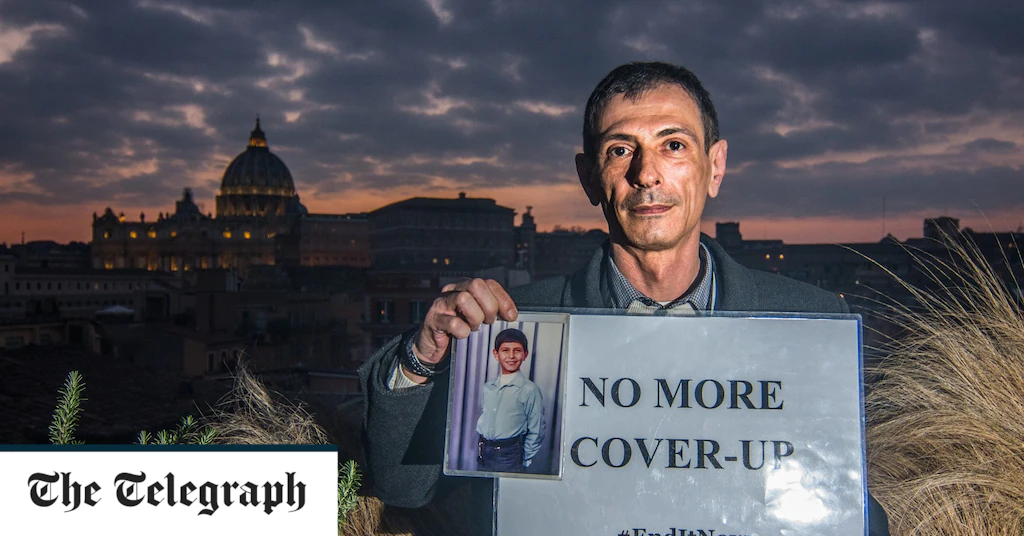“In Italy there has been a culture of omerta over sex abuse, absolutely. In Spain, newspapers expose alleged cases of abuse and an investigation is opened. In Italy, that doesn’t happen.”
The United Nations Committee on the Rights of the Child has been highly critical of Italy, expressing concern about “the numerous cases of children having been sexually abused by religious personnel of the Catholic Church” and the paltry number of investigations and prosecutions.
Some horrific cases of abuse have emerged. One of the most notorious concerns a school for the deaf in Verona. Priests and lay employees at the Antonio Provolo Institute inflicted decades of sickening physical and sexual abuse on children who were unable to articulate the torment they were suffering.
Mr Zanardi’s association has tracked clerical sex abuse cases in Italy and drawn up a map, festooned with pins – each pin represents one of the 360 cases that have been logged in the last 15 years. Those are just the cases that have been reported.
In France, a major investigation last year found that French clergy sexually abused 216,000 children over the past 70 years.
The Catholic Church in France had shown “deep, total and even cruel indifference for years,” protecting itself rather than the victims of the systemic abuse, the head of the commission that compiled the report said.
An investigation this month in Germany accused Pope Emeritus Benedict XVI of failing to act against priests abusing minors when he was Archbishop of Munich between 1977 and 1982.
While pressure for a similar inquiry is growing in Italy, there are many in the Catholic Church who are appalled at the idea, fearing it could expose an avalanche of sex abuse cases.
“They don’t want to open up this Pandora’s Box. They know it’s going to be bad because it’s bad everywhere – we’ve seen that from the scandals all around the world,” said Robert Mickens, a Vatican expert based in Rome and the editor of La Croix International, a Catholic news website.
“I think bishops have seen how this scandal has destroyed churches around the world and they are terrified.”
It is not just the obduracy of the Church that has blocked a sex abuse investigation in Italy. There are cultural factors at play too.
“This is a conservative society. People don’t like to air their dirty laundry,” said Mr Mickens.
“There’s a lot of shame around sex abuse. There’s a false sense of machismo – men don’t want to admit that they were abused. The Church still has a long reach. A lot of people rely on it. Maybe it owns the building they live in, or their job depends on it.”
There are some voices within the Catholic establishment calling for a full and independent inquiry – most notably Hans Zollner, a German Jesuit priest who is Pope Francis’s point man on the global sex abuse crisis.
He said the Vatican was “in shock” over the publication of the German report which accused Pope Benedict of turning a blind eye to predatory priests.
But such investigations are needed “and there should be one in Italy”, he told the Italian newspaper La Stampa in a recent interview.
“By now it is clear that in every region of the world, between 3 and 5 per cent of priests are abusers. We have criminals among us. For this reason we have to take steps to purify the Church,” Father Zollner said.
“These investigations, if conducted objectively and publicly, are absolutely needed. Italy needs one too. In this way, reality could be faced rather than continuously denying that in Italy there is no sexual abuse in the Church.”
Credit: Source link




